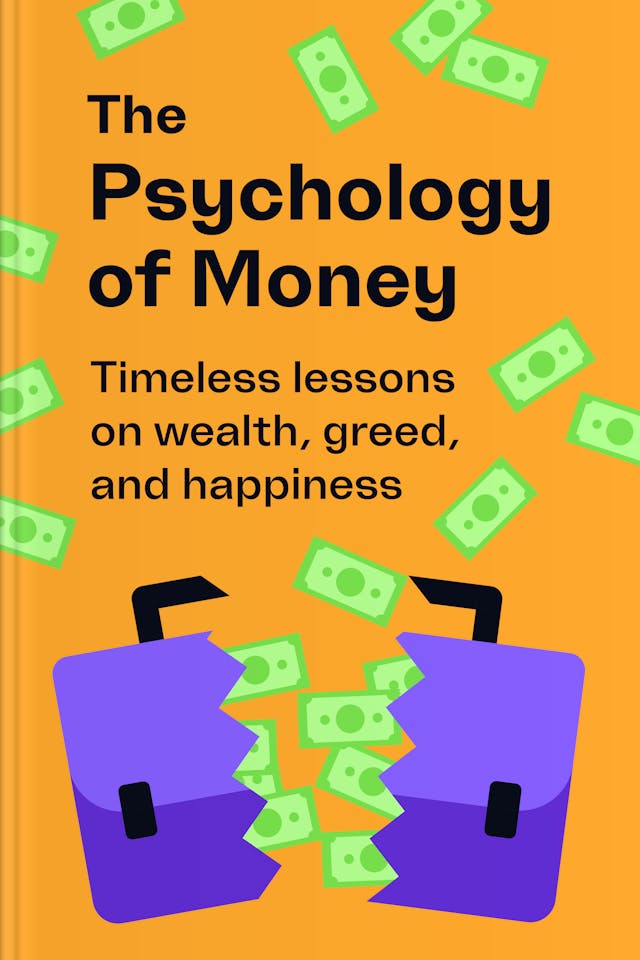You’ll learn
- How luck influences financial success
- Why time matters more than money
- Strategies for long-term wealth building
- The real meaning of happiness in wealth
Protect the world’s peace. Donate to support Ukraine

first KEY POINT
Have you had this experience before? You were reading the biography of someone you respect then came across an incident where they made a bad money decision and you thought they were crazy!Or, maybe you were told of a relative or neighbor who was once wealthy that lost almost all their wealth in a short time —and got angry at how they couldn't manage their money. Many of us have had such experiences one way or another.When you see how people handle money, you will be tempted to think some of them are crazy. But no one is crazy. People make terrible money decisions all the time, but it's not because they don't think properly. It's just that when it comes to money, we are all different.Housel estimates that your experience with money makes up 0.00000001% of what the rest of the world experiences. People born in different generations tend to have varying views of money and this affects everything, including how they invest. For example, if you were born when inflation was low, you're more likely to invest in bonds compared to someone born in the heights of economic inflation.
We have been programmed to believe the results we get are 100% the consequences of our actions. When you fail, it's because you did something wrong. And when you succeed with an investment, you're a good investor. But reality isn't always so. Smart, well-calculated investment decisions have failed, and many profits have been obtained from seemingly unwise ones. Clearly, there is more to success than smarts and hard work.Luck plays a role. We can't tell how much luck goes into success, but we do know it's undeniable. Success is usually not untraceable to favorable events like meeting mentors or being in the right place at the right time — that's the uncontrollable factor, that's the luck.
The opposite is also true. Some failures are due to unfavorable circumstances. Death, accidents, uncontrollable world events, etc., have shortchanged people and made them appear to be failures. The bottom line is, don't be quick to judge people's finances when you don't know the whole story.We can do almost nothing about luck and risk and how they affect our finances. But there are other things in our control. And it's wisdom to focus on maximizing the things you can control...let's talk about those things.
second KEY POINT
Modern capitalism is a coin with both good and bad sides. On the one hand, it helps you accumulate wealth that can be transferred to your kids after you're dead. That's the good part. The other side of the coin is that it fosters envy. The type of envy that turns you into a perpetual money chaser.Many people don't realize they're already putting money above happiness. The deception of capitalism is so subtle that it often takes being caught in its dark web before you realize what's happening.You may think you're working for yourself and the future of your family, but the real reason could be that you're just working hard to earn more than a neighbor.The problem with this kind of competition is that you may end up risking more important things in your pursuit of money. Things like freedom, time, family, and even your reputation.How many reputable people have you seen go to jail for stealing public funds? If you don't know any, you've at least seen several in the news. But that's of course on the extreme side of things; what you see more often is people sacrificing time and important relationships for work.

Continue reading with Headway app
Continue readingfirst KEY POINT
second KEY POINT
third KEY POINT
fourth KEY POINT